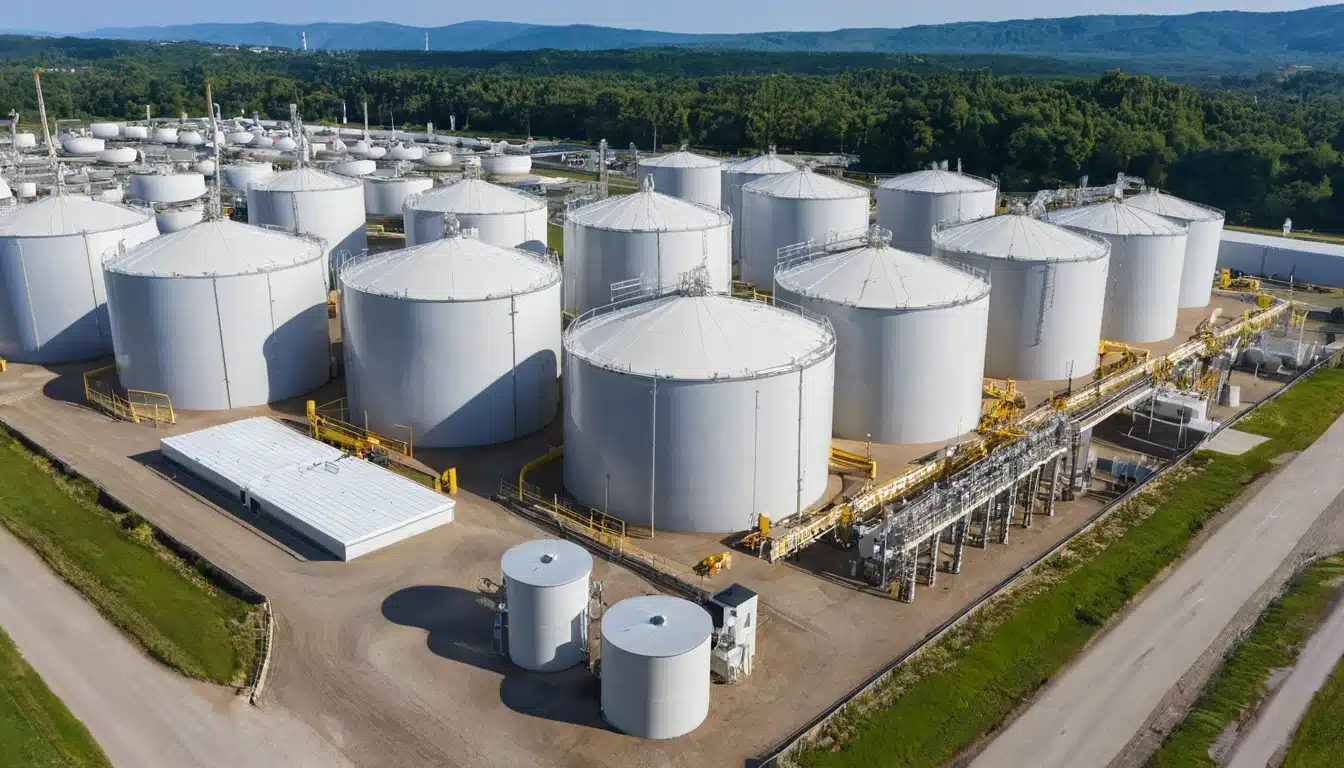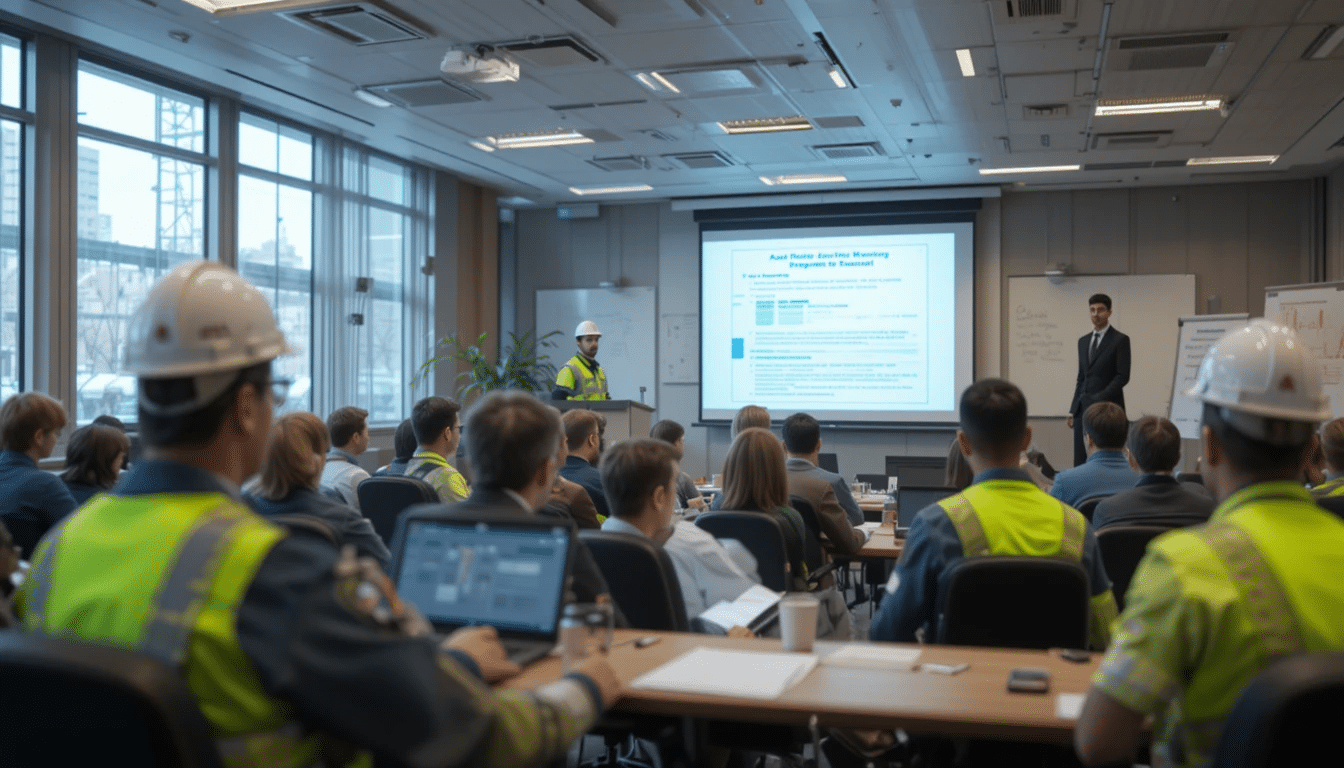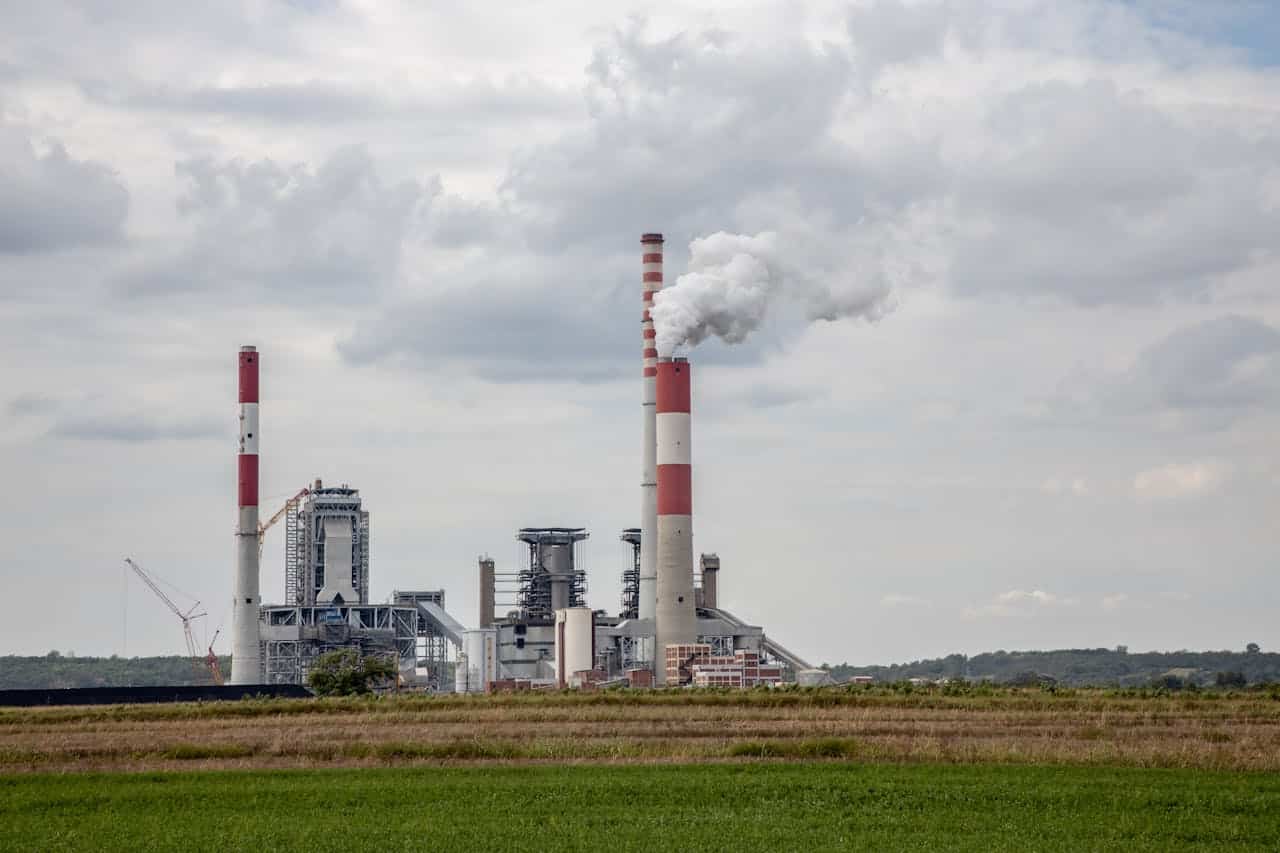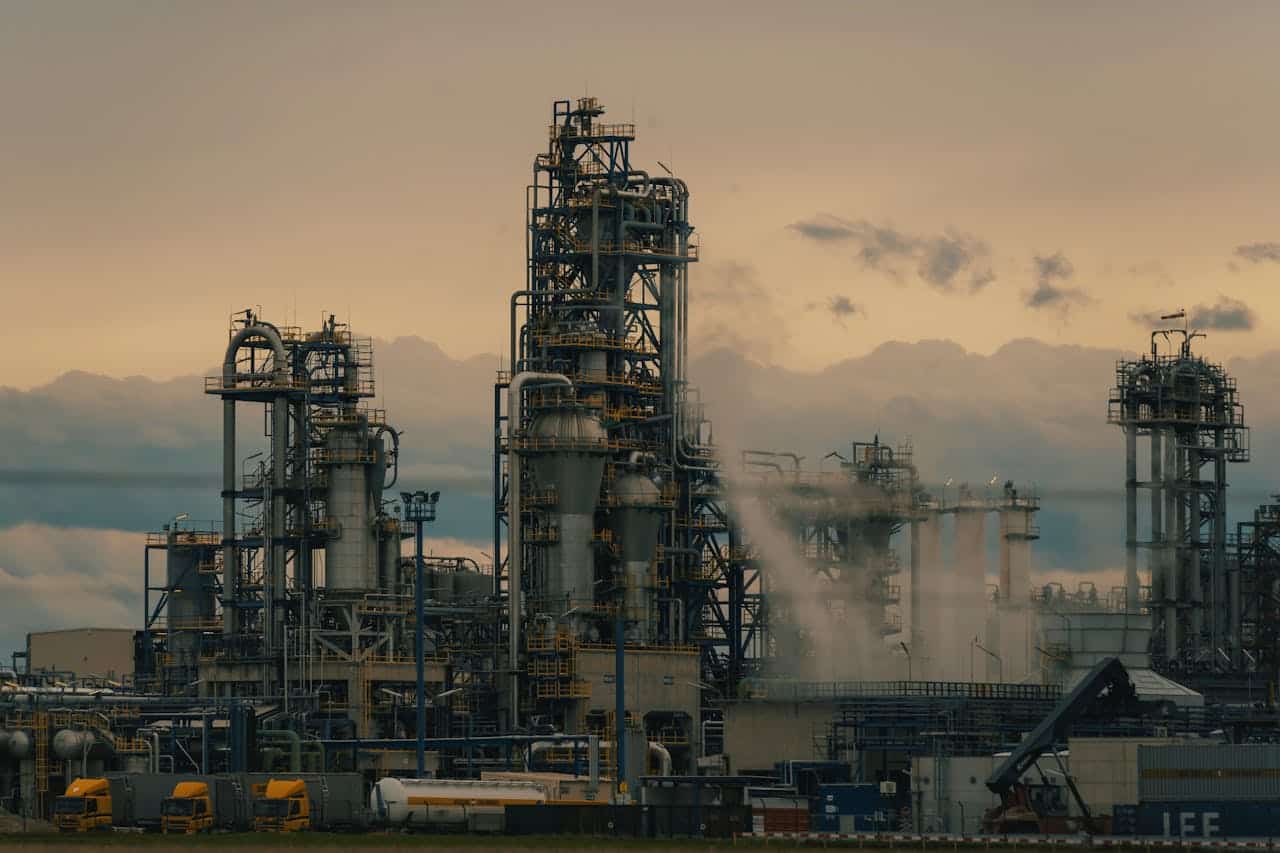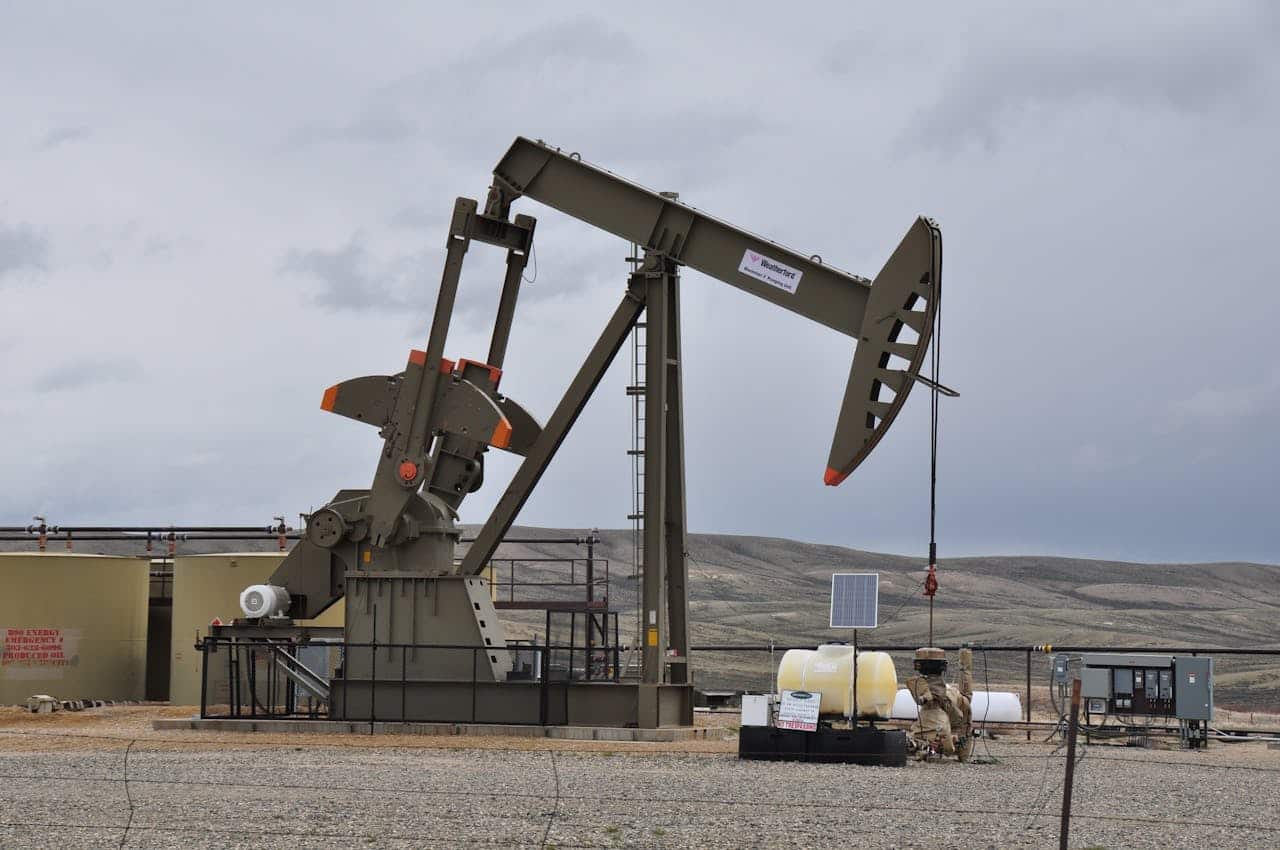LNG Terminal and Terminal Process Operations
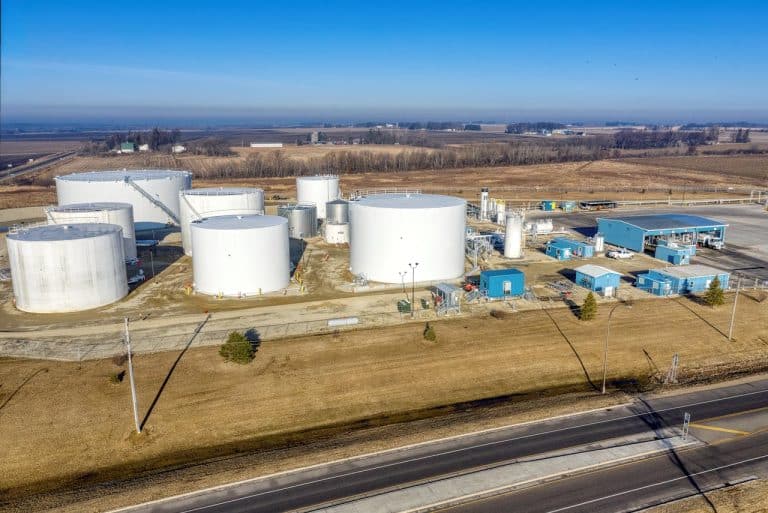
| Date | Format | Duration | Fees (USD) | Register |
|---|---|---|---|---|
| 22 Dec - 30 Dec, 2025 | Live Online | 7 Days | $5075 | Register → |
| 05 Jan - 09 Jan, 2026 | Live Online | 5 Days | $3785 | Register → |
| 23 Feb - 03 Mar, 2026 | Live Online | 7 Days | $5075 | Register → |
| 01 Mar - 12 Mar, 2026 | Live Online | 10 Days | $7735 | Register → |
| 12 Apr - 16 Apr, 2026 | Live Online | 5 Days | $3785 | Register → |
| 04 May - 12 May, 2026 | Live Online | 7 Days | $5075 | Register → |
| 22 Jun - 03 Jul, 2026 | Live Online | 10 Days | $7735 | Register → |
| 19 Jul - 21 Jul, 2026 | Live Online | 3 Days | $2625 | Register → |
| 31 Aug - 11 Sep, 2026 | Live Online | 10 Days | $7735 | Register → |
| 14 Sep - 02 Oct, 2026 | Live Online | 15 Days | $11515 | Register → |
| 04 Oct - 08 Oct, 2026 | Live Online | 5 Days | $3785 | Register → |
| 02 Nov - 10 Nov, 2026 | Live Online | 7 Days | $5075 | Register → |
| 06 Dec - 10 Dec, 2026 | Live Online | 5 Days | $3785 | Register → |
| Date | Venue | Duration | Fees (USD) | Register |
|---|---|---|---|---|
| 15 Dec - 19 Dec, 2025 | London | 5 Days | $6305 | Register → |
| 19 Jan - 23 Jan, 2026 | Berlin | 5 Days | $6305 | Register → |
| 16 Feb - 27 Feb, 2026 | Dubai | 10 Days | $11085 | Register → |
| 23 Mar - 27 Mar, 2026 | Dubai | 5 Days | $5775 | Register → |
| 27 Apr - 08 May, 2026 | Abu Dhabi | 10 Days | $11085 | Register → |
| 13 May - 15 May, 2026 | Cape Town | 3 Days | $4680 | Register → |
| 29 Jun - 03 Jul, 2026 | Dubai | 5 Days | $5775 | Register → |
| 20 Jul - 24 Jul, 2026 | Seoul | 5 Days | $6835 | Register → |
| 17 Aug - 21 Aug, 2026 | Mauritius | 5 Days | $5575 | Register → |
| 07 Sep - 18 Sep, 2026 | Dubai | 10 Days | $11085 | Register → |
| 05 Oct - 07 Oct, 2026 | Kigali | 3 Days | $4680 | Register → |
| 08 Nov - 26 Nov, 2026 | Jeddah | 15 Days | $13500 | Register → |
| 14 Dec - 18 Dec, 2026 | London | 5 Days | $6305 | Register → |
Did you know that operational inefficiencies at LNG terminals can result in substantial losses? For example, Australia’s Chevron-led Gorgon LNG plant cost $54 billion, or some $20 billion more than planned. This compelling statistic underscores the critical importance of efficient terminal operations and process management in the LNG industry.
Course Overview
The LNG Terminal and Terminal Process Operations course by Alpha Learning Centre is meticulously designed to equip professionals with essential skills in managing complex LNG terminal operations. This course focuses on cryogenic valve operations, regasification processes, and LNG flow management to ensure participants can effectively navigate the intricate landscape of LNG applications and port services.
Why Select This Training Course?
Selecting this LNG Terminal Operations Course offers numerous advantages for professionals involved in terminal planning, process valve management, and LNG value chain operations. Participants will gain advanced knowledge of bidirectional valves, shutoff valves, and valve automation techniques. The course provides hands-on experience with state-of-the-art simulation tools and practical equipment demonstrations, enabling attendees to optimise their terminal operations effectively.
For organisations, investing in this training enhances overall operational efficiency and reduces risks associated with LNG handling. By ensuring that personnel are well-trained in cargo delivery operations and floating LNG system integration, organisations not only protect their assets but also build sustainable practices. Research shows that companies implementing comprehensive terminal management strategies can achieve significant improvements in both operational reliability and cost reduction. For instance, digital technology implementation in LNG terminals has led to improved operational efficiency, with predictive maintenance algorithms reducing downtime and energy consumption.
Individuals who complete this course will benefit from enhanced career prospects as they become more valuable assets in their respective fields. The skills acquired through this training can lead to professional growth and increased responsibilities within their organisations. Studies indicate that with advanced LNG terminal management techniques, professionals can drive substantial improvements in operational efficiency. For example, the challenges faced by the U.S. LNG industry in controlling construction and operation costs highlight the need for skilled professionals who can maintain operational efficiency to achieve a competitive advantage in the international LNG market.
Transform your LNG terminal operations capabilities – Register now for this critical advanced training programme.
Who is this Training Course for?
This course is suitable for:
- Terminal operations managers and supervisors.
- LNG facility engineers and technicians.
- Health, safety, and environmental officers in LNG terminals.
- Logistic and supply chain professionals focused on LNG.
- Regulatory compliance specialists in the energy sector.
What are the Training Goals?
The objectives of this training course are to enable professionals to:
- To master the operational aspects of LNG terminals.
- To integrate modern technology into terminal management.
- To ensure safety and compliance in LNG handling operations.
- To optimise the efficiency of LNG storage and regasification.
How will this Training Course be Presented?
The LNG Terminal and Terminal Process Operations Course employs a comprehensive and innovative approach to ensure maximum knowledge retention and skill development. Expert-led instruction from seasoned industry professionals forms the core of the course, providing up-to-date insights into modern LNG terminal technologies and practical applications for today’s energy sector.
The course utilises a blend of theoretical lectures and practical applications, allowing participants to apply their knowledge to realistic scenarios. Advanced educational methodologies create a personalised and engaging learning journey through:
- Interactive online workshops with terminal operation experts
- Simulation software for operational scenarios
- Practical exercises on safety and process management
- Collaborative learning environments for problem-solving
- Access to an up-to-date digital resource centre
Join us now and elevate your LNG terminal operations expertise to new heights!
Course Syllabus
Module 1: Terminal Design and Layout
- Strategic site selection for LNG terminals.
- Terminal infrastructure for LNG import and export.
- Storage tank design and safety features.
- Berthing and mooring systems for LNG ships.
- Pipeline network design within the terminal.
- Security measures for terminal operations.
- Environmental protection systems in terminal design.
- Energy efficiency considerations in terminal layout.
- Integration of renewable energy in terminals.
- Space planning for future expansions.
- Compliance with international standards for terminal design.
- Fire protection and emergency response infrastructure.
Module 2: LNG Receiving and Unloading
- Procedures for receiving LNG carriers.
- Safety protocols during LNG ship unloading.
- Managing boil-off gas during unloading.
- Cryogenic pipeline operations and maintenance.
- Pressure management during transfer.
- Coordination between ship and shore teams.
- Monitoring for leaks and spill prevention.
- Emergency shutdown systems for transfer operations.
- Handling of impurities in LNG cargo.
- Optimising unloading time and efficiency.
- Training for personnel involved in unloading.
Module 3: LNG Storage Operations
- Cryogenic storage tank operations.
- LNG tank level and pressure management.
- Boil-off gas management strategies.
- Tank insulation and maintenance practices.
- Safety systems for LNG storage.
- Preventing stratification in LNG tanks.
- Tank inspection and integrity testing.
- Procedures for tank purging and cooling down.
- Managing LNG quality in storage.
- Energy conservation in storage operations.
- Roll-over prevention in LNG tanks.
Module 4: Regasification Process Management
- Technologies used in LNG regasification.
- Open Rack Vaporizers (ORV) and their operation.
- Submerged Combustion Vaporizers (SCV) specifics.
- Intermediate Fluid Vaporizers (IFV) applications.
- Managing variable gas demand through regasification.
- Energy efficiency in regasification processes.
- Heat integration for better performance.
- Safety in regasification operations.
- Handling of nitrogen and other gases.
- Maintenance of vaporiser systems.
- Environmental considerations in regasification.
- Control systems for regasification.
Module 5: Terminal Safety and Risk Management
- Hazard identification in LNG terminal operations.
- Risk assessment methodologies for LNG facilities.
- Fire and explosion prevention strategies.
- Emergency response planning for LNG incidents.
- Safety audits and compliance checks.
- Training for emergencies.
- Gas detection systems within terminals.
- Control of ignition sources.
- Personal protective equipment for LNG operations.
- Lockout/Tagout (LOTO) procedures.
Module 6: Terminal Automation and Control Systems
- SCADA systems for LNG terminal operations.
- Automation in LNG transfer and storage processes.
- DCS (Distributed Control System) in terminals.
- PLCs for critical control functions.
- IoT for real-time data collection and analysis.
- Cybersecurity in LNG terminal operations.
- Predictive maintenance using AI.
- Remote operation capabilities of LNG terminals.
- Data management for operational efficiency.
- Integration of control systems with safety systems.
Module 7: Terminal Maintenance Practices
- Preventive maintenance schedules for LNG facilities.
- Inspection techniques for cryogenic equipment.
- Maintenance of LNG pumps and compressors.
- Routine checks for pipeline integrity.
- Handling of cryogenic valves and fittings.
- Maintenance during operational continuity.
- Spare parts management for LNG terminals.
- Corrosion control in LNG environments.
- Training for maintenance crews.
- Safety during maintenance activities.
Module 8: Environmental and Regulatory Compliance
- Environmental impact of LNG terminal operations.
- Compliance with air quality standards.
- Water management and treatment in LNG terminals.
- Noise and vibration control.
- Waste management practices.
- Reporting and documentation for compliance.
- Permitting for LNG terminal operations.
- Spill response and mitigation planning.
- Continuous environmental performance improvement.
Module 9: Terminal Efficiency and Optimization
- Strategies for reducing terminal operational costs.
- Optimising LNG cargo handling times.
- Energy management in terminal operations.
- Reducing boil-off gas through better practices.
- Demand forecasting for terminal operations.
- Efficiency in regasification scheduling.
- Performance metrics for terminal operations.
- Lean management principles in LNG terminals.
- Resource planning for peak operational periods.
- Continuous process improvement initiatives.
Training Impact
The impact of LNG terminal operations training is evident through various real-world case studies and data, which demonstrate the effectiveness of structured programmes in enhancing operational efficiency and reducing costs.
Research indicates that organisations implementing structured LNG terminal operations training programmes have demonstrated measurable benefits in both operational performance and cost reduction. A case study from the Chevron-led Gorgon LNG plant in Australia showed that construction delays and technical problems led to cost overruns of approximately $17 billion, highlighting the critical importance of efficient project management and operations.
These case studies highlight the tangible benefits of implementing advanced LNG terminal operations techniques:
- Improved operational efficiency through digital technology integration
- Reduced construction and operation costs
- Increased competitiveness in global LNG markets
- Enhanced safety and security in LNG terminal operations
By investing in this advanced training, organisations can expect to see:
- Significant improvement in LNG terminal performance indicators
- Improved ability to handle complex operational challenges
- Enhanced decision-making capabilities in terminal management
- Increased competitiveness through comprehensive LNG terminal strategies
Transform your career and organisational performance – Enrol now to master LNG Terminal and Terminal Process Operations!
FAQs
4 simple ways to register with Alpha Learning Centre (ALC):
Website:
Log on to our website www.alphalearningcentre.com. Select the course you want from the list of categories or filter through the calendar options. Click the “Register” button in the filtered results or the “Manual Registration” option on the course page. Complete the form and click submit. Telephone:
Call +971 58 102 8628 or +44 7443 559 344 to register. E-mail Us:
Send your details to [email protected]. Mobile/WhatsApp:
You can call or message us on WhatsApp at +971 58 102 8628. Believe us; we are quick to respond to.
Yes, besides English, we do deliver courses in 17 different languages which includes Arabic, French, Portuguese, Spanish—to name a few.
Our course consultants on most subjects can cover about 3 to maximum 4 modules in a classroom training format. In a live online training format, we can only cover 2 to maximum 3 modules in a day.
Our public courses generally start around 9:30am and end by 4:30pm. There are 7 contact hours per day.
Our live online courses start around 9:30am and finish by 12:30pm. There are 3 contact hours per day. The course coordinator will confirm the Timezone during course confirmation.
A valid ALC ‘Certificate of Training’ will be awarded to each participant upon successfully completing the course. Accredited certificates from HRCI, PMI, CPD, IIBA are also available upon request and additional fees.



